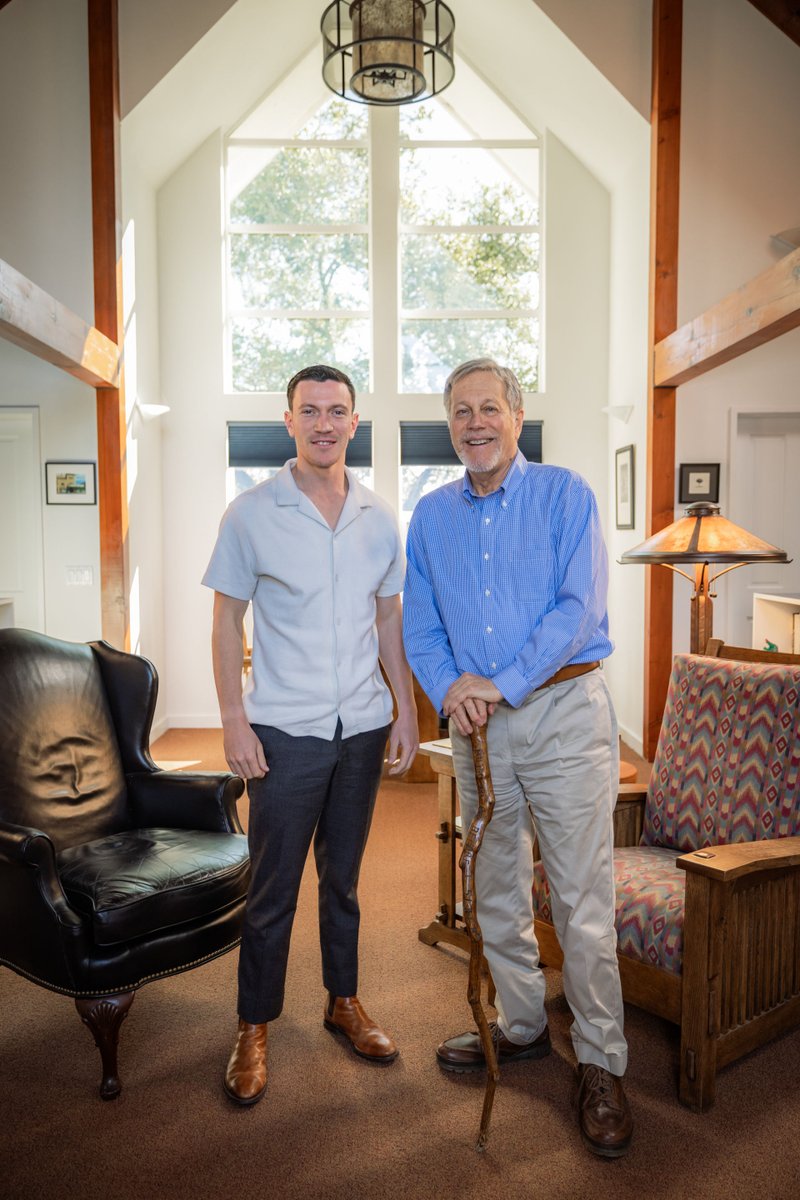New long-form article!
This deep dive is all about podcasting. It's everything I've learned in four years, across more than 100 interviews, about preparation, production, and promotion.
I've also shared my favorite ideas in this thread.
perell.com/blog/how-i-pro…
This deep dive is all about podcasting. It's everything I've learned in four years, across more than 100 interviews, about preparation, production, and promotion.
I've also shared my favorite ideas in this thread.
perell.com/blog/how-i-pro…
1. Cold email is your best friend
Contact people directly if you can. Almost everybody, no matter how powerful they are, reads their personal email. If you can’t find somebody’s email with a Google search, find their personal website or the website of the company they work for.
Contact people directly if you can. Almost everybody, no matter how powerful they are, reads their personal email. If you can’t find somebody’s email with a Google search, find their personal website or the website of the company they work for.
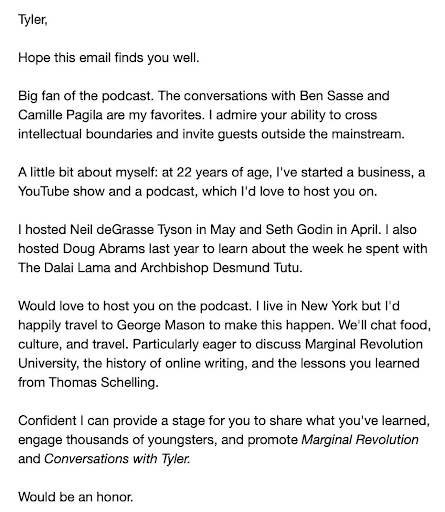
2. Contacting big-name writers
Many writers only do podcasts when they're promoting a book. Email authors right when you hear they’re releasing a new book. When you do, offer to record the podcast early but release it when the book comes out.
That's what I did with Seth Godin.
Many writers only do podcasts when they're promoting a book. Email authors right when you hear they’re releasing a new book. When you do, offer to record the podcast early but release it when the book comes out.
That's what I did with Seth Godin.
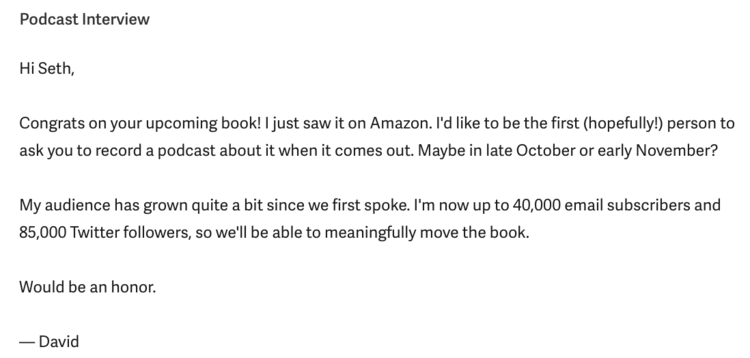
3. Write questions in advance
I try to write questions that catch the guest off guard. In a respectful way, never a hostile one. And not because the questions are sharp, but because they inspire an epiphany.
Here are my questions for my interview with @3blue1brown
I try to write questions that catch the guest off guard. In a respectful way, never a hostile one. And not because the questions are sharp, but because they inspire an epiphany.
Here are my questions for my interview with @3blue1brown

4. Favor conversation over questions
No matter how many questions I send, the best questions are unpredictable because they follow-up on a previous answer. Listen for the golden silences in conversation when people express themselves in the absence of words.
No matter how many questions I send, the best questions are unpredictable because they follow-up on a previous answer. Listen for the golden silences in conversation when people express themselves in the absence of words.
5. Create a quality guest experience
A guest should never feel confused. If they do, it’s our fault. We confirm the podcast recording via email 24 hours before every podcast and email a “Guest Page” with essential details, such as contact and recording information.
A guest should never feel confused. If they do, it’s our fault. We confirm the podcast recording via email 24 hours before every podcast and email a “Guest Page” with essential details, such as contact and recording information.
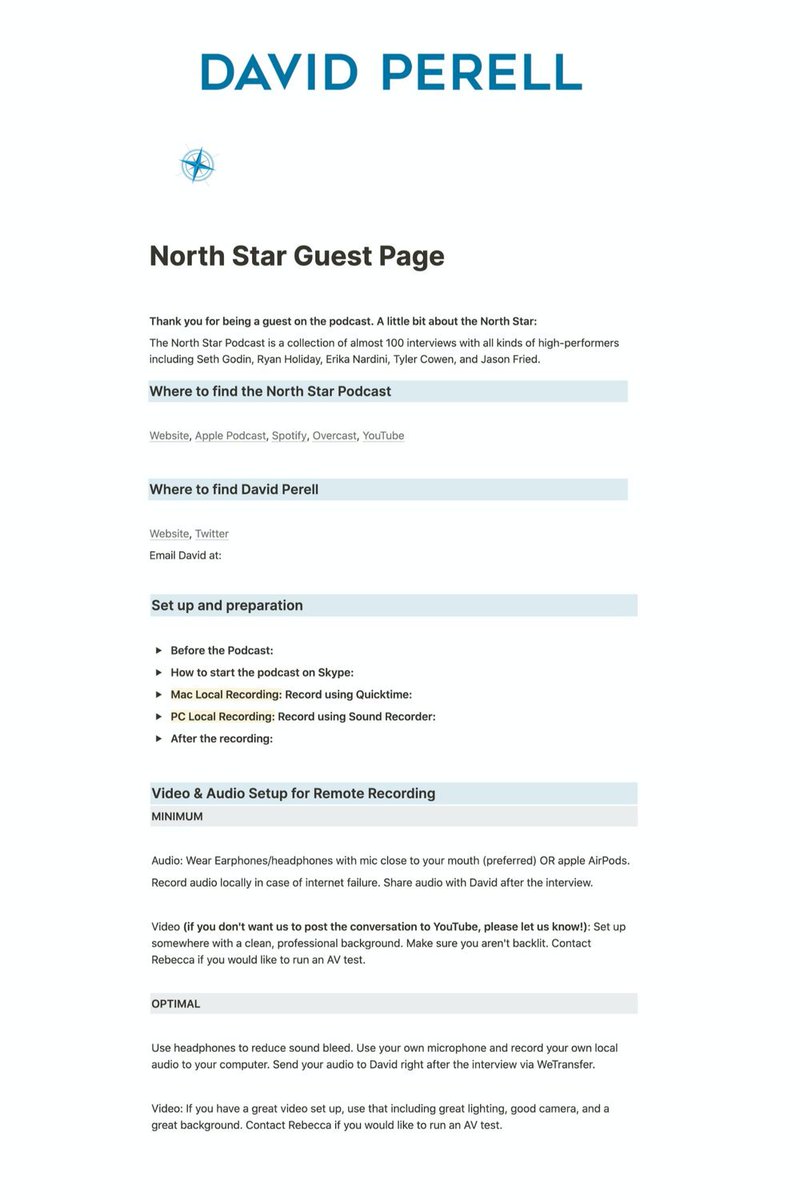
6. The Podcast 2x2
When it comes to explicit interviewing styles, I think of podcasts on a 2x2 axis. One axis is focused on learning vs. entertainment, and the other is about hanging out versus interviewing.
My podcast is 90% learning-focused, 70% interview focused.
When it comes to explicit interviewing styles, I think of podcasts on a 2x2 axis. One axis is focused on learning vs. entertainment, and the other is about hanging out versus interviewing.
My podcast is 90% learning-focused, 70% interview focused.

7. Save time with a production page
Once the guest signs off, I open a production page with all the information my team will need to edit, publish, and promote the podcast. The worksheet takes time, but it reduces all back-and-forth among our team.


Once the guest signs off, I open a production page with all the information my team will need to edit, publish, and promote the podcast. The worksheet takes time, but it reduces all back-and-forth among our team.
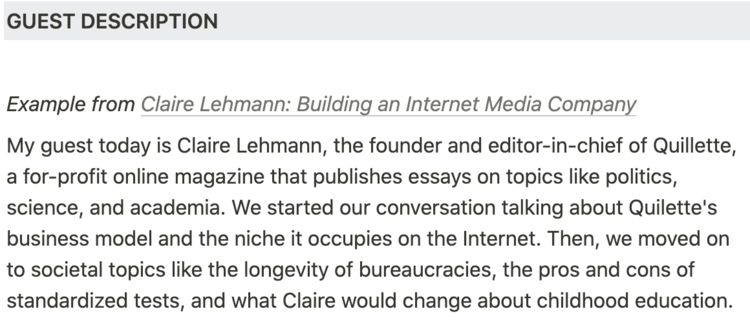
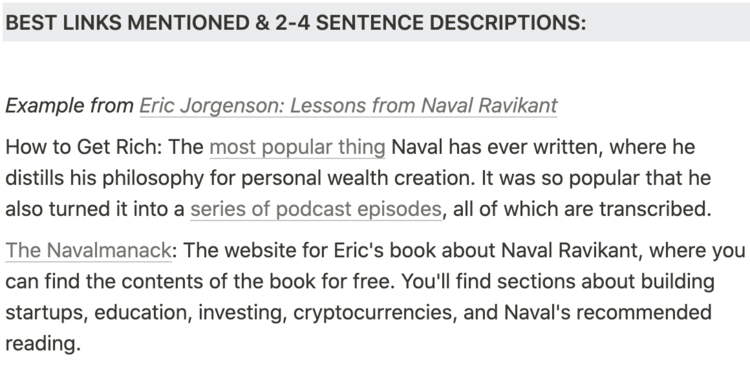

8. Share your podcasts on Twitter
Create a thread where people can explore key quotes and high-level ideas from your podcast. Quotes are simple because you don’t need to flex your creative muscles to share them. Just transcribe what the guest says.
Create a thread where people can explore key quotes and high-level ideas from your podcast. Quotes are simple because you don’t need to flex your creative muscles to share them. Just transcribe what the guest says.
https://twitter.com/david_perell/status/1302950170829651970
The full essay is complete with downloadable templates and ideas that didn't make it into this thread.
You can read it here.
perell.com/blog/how-i-pro…
You can read it here.
perell.com/blog/how-i-pro…
• • •
Missing some Tweet in this thread? You can try to
force a refresh






